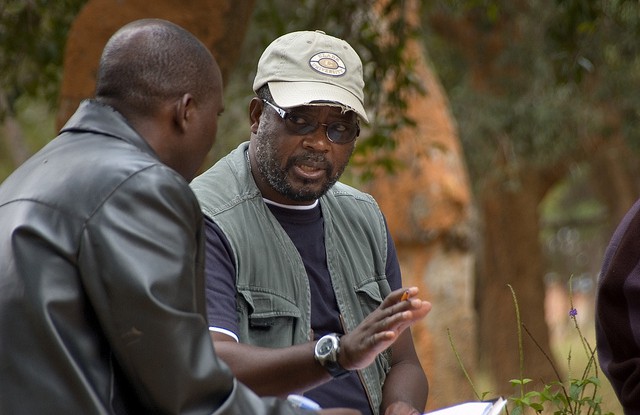DOUALA, Cameroon (5 March, 2012)_Forestry experts in the Democratic Republic of the Congo have a hefty workload: as only 100 of them exist to manage the second largest tract of tropical forest in the world, each is theoretically responsible for 2.3 million hectares.
While Central Africa is desperate for more forestry researchers, African universities – which are often the only domestic institutions with the expertise to train them – “are not prioritising forest research and leaving students to their own devices”, according to CIFOR scientist Francois Hiol Hiol at a workshop held in Douala, Cameroon last week.
“There is a real need for national plans for forestry research in Central Africa which can address globally pressing issues such as carbon sequestration and REDD+,” he said.
The workshop was part of a week-long gathering of researchers, government officials and donors from Central Africa, Europe, the United States and Canada to determine the future direction of forestry research in Central Africa.
In 2005, a survey by CIFOR and the Food and Agriculture Organisation of the United Nations (FAO) revealed that there were fewer than 10 forest researchers in the whole of the DRC. The number had plummeted as a result of AIDS, war and emigration. It was clear that if the country was ever to pull itself out of poverty using its own rich resources, the forestry sector would have to be strengthened substantially.
Alain Billand of the French Institute of Agricultural Research for Development (CIRAD), pointed out that much of the data on forests in Central African institutions that does exist dates from the colonial era up to the 1980s, when many countries were obliged to cut research funding as part of financial structural adjustment programs. Research was not considered essential by the governments obliged to make the cuts and so suffered heavily.
But this doesn’t mean that no research is being conducted in the region. The Central African Forests Observatory recently found that forest-related research generally deals with food security and is done under the auspices of the countries’ ministries of agriculture.
Furthermore, CIFOR has supported the training of Masters and PhD students in the DRC, increasing the country’s national forest research capacity by 1000 percent.
Attraction of public financing is one of the key issues, suggested workshop participants.
“Today there is a great demand for cooperation and collaboration among institutions [in Central Africa], but there is no international institution for financing research,” Billand said.
Richard Eba’a Atyi, director of the CIFOR regional office in Yaounde, Cameroon, expressed concern that forestry research in Central Africa may have “lost visibility” over the past 30 years.
“In order to attract public financing, it’s necessary to have a certain level of visibility,” he said. “One of our big problems is the difficulty we have in communicating about our work to those who are affected by it.”
Participants suggested creating a consortium of African research institutions to exist at the national and sub-regional level to better share results and to improve their capacity to publicise their research.
We want you to share Forests News content, which is licensed under Creative Commons Attribution-NonCommercial-ShareAlike 4.0 International (CC BY-NC-SA 4.0). This means you are free to redistribute our material for non-commercial purposes. All we ask is that you give Forests News appropriate credit and link to the original Forests News content, indicate if changes were made, and distribute your contributions under the same Creative Commons license. You must notify Forests News if you repost, reprint or reuse our materials by contacting forestsnews@cifor-icraf.org.

